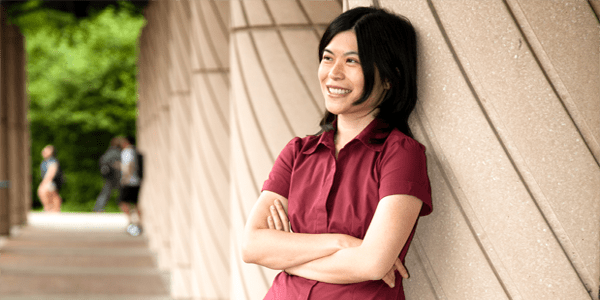Suzie Pun, the UW Bioengineering Robert F. Rushmer Professor of Bioengineering, was recently named a 2015 National Academy of Inventors (NAI) Fellow. She is one of 168 leaders of invention and innovation selected for this honor in 2015. Dr. Pun and other 2015 NAI Fellows will be inducted on April 15, 2016 as part of the Fifth Annual Conference of the National Academy of Inventors at the United States Patent and Trademark Office (USPTO) in Alexandria, Va.
Election to NAI Fellow status is a high professional distinction given to academic inventors who demonstrate a prolific spirit of innovation in creating or facilitating outstanding inventions that have made a tangible impact on quality of life, economic development and societal welfare. NAI Fellows are nominated by their peers for outstanding contributions to invention in their fields. The 2015 Fellows bring the total number of NAI Fellows to 582, and account for more than 5,300 of the 20,000 U.S. patents held by all NAI Fellows.
Included among all NAI Fellows are more than 80 presidents and senior leaders of research universities and non-profit research institutes, 310 members of the other National Academies (NAS, NAE, NAM), 27 inductees of the National Inventors Hall of Fame, 32 recipients of the U.S. National Medal of Technology and Innovation and U.S. National Medal of Science, 27 Nobel Laureates, 14 Lemelson-MIT prize recipients, 170 AAAS Fellows and 98 IEEE Fellows, among other awards and distinctions.
The NAI is a 501(c)(3) non-profit member organization comprised of U.S. and international universities, and government and nonprofit research institutions. The organization was founded in 2010 to recognize and encourage inventors with patents issued by the U.S. and Trademark Office, enhance the visibility of academic technology and innovation, encourage the disclosure of intellectual property, educate and mentor innovative students and translate the inventions of its members to benefit society.
Dr. Pun’s research focuses on developing bioinspired materials for medical applications. Recently, bioengineers in Dr. Pun’s research group, along with collaborators from UW Emergency Medicine and Chemical Engineering, developed PolySTAT, an injectable polymer that helps strengthen blood clots to stop uncontrolled bleeding. The polymer could be used to quickly treat bleeding in trauma patients in emergency rooms, or in military combat environments or other low-resource settings. Dr. Pun also investigates improved methods for drug delivery to the central nervous system, and detection and treatment of cancer.


